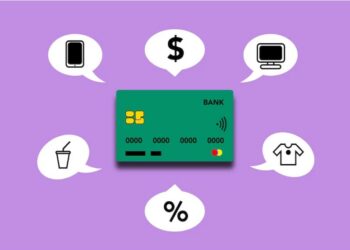Africa is a fast-growing continent, and slowly, more investors are realizing that it’s a fertile land for business. There are many business opportunities, both tapped and untapped, in Africa that investors can explore and make money. However, the sad thing is that businessmen are largely unaware of these opportunities. This is primarily due to the continent’s tiny and underdeveloped economy.
Although Africa has a relatively underdeveloped economy, this is not to say that the continent has not evolved. Several countries have undergone extensive economic reforms, thereby making them one of the best places to invest in the world. Sometimes, these countries even boast of providing higher returns than countries in the developed world.
If you’re looking to start or expand your business in Africa, you must do due diligence. This will involve doing proper research and finding answers to the right questions. You wouldn’t want to go into business head-on without understanding the business economy of the region where you plan to base your business.
In this post, we’ll discuss the top 10 African business models that you can explore as an investor looking to do business in Africa. Stay with us.

What is a Business Model?
A business model is simply a company’s strategy for connecting customers and making a strong profit. Usually, it includes key information about a company’s products or services, its target market, and how it plans to increase revenue. In other words, you can describe a business model as a blueprint that defines how a company will create, deliver, and gain value for the customers— and for itself.
Every process and policy that a company follows is part of its business model. So, it is safe to say that a business model can determine and measure the potential success of a business.
Top 10 African Business Models
Below are the common types of business models in Africa:
Retailer
This is one of the most common business models that people interact with regularly. In the supply chain, a retailer is the last entity that has direct interaction with consumers. They often buy finished products from manufacturers and sell them directly to consumers.
Fee-for-Service
In this type of business model, instead of selling products, the model is centered around labor and providing services. Usually, a fee-for-service company charges an hourly rate or a fixed cost for a specific arrangement. This type of company is often specialized and offers insights that may require specific expertise and training.
Manufacturer
A manufacturer is an entity responsible for sourcing raw materials and producing finished products using internal labor, machinery, and capital. Generally, manufacturers produce custom goods or highly replicated, mass-produced products. Also, manufacturers can sell their products to distributors(wholesalers), retailers, or directly to consumers.

Subscription-based Business Model
In this type of business model, businesses strive to attract customers in the hopes of luring them into long-term patronage. Customers typically sign up for ongoing use of the product, so they make weekly, monthly, or yearly payments rather than one-time purchases. The trick to this is that if customers like the product or service enough, they will continue to purchase it each time. This saves employees time and resources by convincing customers to buy the product again.
If you want this model to be successful, you need to establish trust with your customers by providing them with valuable products or services. This will motivate them to renew their payments each period.
Bundling
This business model involves bundling several products together and selling them as a single item. The idea behind this model is to get customers to purchase more products at once. This will in turn raise your average order value and, sometimes, reduce your inventory waste. Additionally, this model is great for when you want to clear dead stock. You can bundle up a slow-moving product with a faster-selling one, and customers will be more willing to purchase it.
Marketplace
Marketplaces are straightforward. Here’s how they work: in exchange for hosting a platform for business to be conducted, the marketplace receives compensation. Keep in mind that transactions can occur without marketplaces. However, it is a business model to ensure that transactions are easier, safer, and faster.
Freemium
The freemium model attracts customers by introducing them to a product with basic features for free. However, moving forward, customers will be required to pay a subscription fee to access the premium features of this product. The truth is nobody wants to pay for a product they don’t know will work for them. So, the freemium model allows consumers to try a product and access its benefits without buying it. The idea behind this model is that once customers fall in love with the free version of a product, they will be willing to pay to access the premium version.

Franchise
This model leverages existing business plans to expand and reproduce another branch of a business in a different location. Usually, food, hardware, or fitness company franchisers work with incoming franchisees to finance the business and promote the new location. In return, the franchiser receives a percentage of earnings from the franchisee.
Pay-As-You-Go
Instead of charging a fixed fee, some companies implement a pay-as-you-go policy. This allows you to pay for services depending on the amount of product or service used. Sometimes, the company may charge a fixed fee for rendering the service and add an extra cost that changes each month based on what you consume.
Affiliate Marketing
This is a business model in which you promote a company’s product and get a commission in return for every sale that you make. The affiliate marketing model is based on marketing and the broad reach of a person’s platform. You can promote the company’s products through blogs, videos, social media, and more. Then, you earn money by making people buy those particular products.
Takeaway
Establishing a business can be hard but it can even become tougher if you don’t have the right information. So, as an investor, it is important to understand what you’re getting into.
Over the years, Africa has evolved into a continent with great potential for business growth. You just have to know what works in the region. In that light, this post has explored some of the most common business models that work in Africa. You should keep in mind that you don’t have to operate only one of these models— you can combine any of them depending on the needs of your business. The end goal is for your business to thrive and make profits.
Now that you have information about the various models you could use for your business in Africa, there’s one thing left. You need to ensure that there are no barriers to smooth business transactions between you and your customers. That’s where Changera comes in. With Changera Business, you get all the features you need for business transactions with people all over the world. There’s no time to waste. It’s time to take action and build the business of your dreams!
Download Changera for Business on the Google Play Store or the App Store today to get started.







Discussion about this post